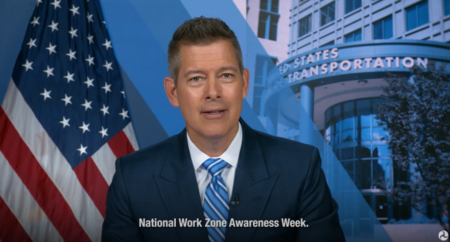UK Transport Minister Jesse Norman has announced that road users will benefit from a government investment of almost £200m (US$268m) to help improve the condition of local roads up and down the country.
The new funding will go toward repairing almost one million potholes, and will also be used for highways maintenance, developing new technologies to improve highways resilience, and high-quality cycle parks. The finance includes:
• £46m (US$61.7m) to help highway authorities in England, outside London, repair potholes, which is on top of the £75m (US$100m) Pothole Action Fund already given to councils this year. The £250m (US$335m) Pothole Action Fund was announced in the 2016 Budget and will fix more than four million potholes by 2020/21;
• £151m (US$202m) for the next round of the local highways maintenance incentive fund, which rewards councils for efficiently planning roads repairs, and is part of just over £6bn (US$8bn) given to authorities to help keep their infrastructure in good condition;
• A new £500,000 (US$670,000) competition that will challenge councils to develop pilot projects of new connected technologies for the collection of road condition and pothole data, with suggestions including the use of smartphones as sensors, in-vehicle cameras, and fleet or personal onboard telematics devices;
• A further £4m (US$5.3m) will enable the government’s Cycle Rail Program to continue next year. The project pays for high quality cycle parking built at stations and has seen bike journeys at participating stations increase by nearly 40%. Since 2012, the Department for Transport (DfT) has invested almost £35m (US$47m) to build cycle facilities at stations, including cycle hubs that are secure and have retail and repair facilities;
• The pilot Cycling and Walking to Work fund will also be extended by six months, with Greater Manchester, West Yorkshire and Liverpool benefitting from a share of £1.6m (US$2.1m).
Norman announced the new funding in York, where he was viewing the progress of an innovative pothole spotter trial and a new e-bike, which will be 11th vehicle to have cameras fitted to it as part of the pilot, which is also running in Essex and Wiltshire. The trial sees high-definition cameras fitted to bicycles, buses and refuse trucks to monitor road conditions, providing councils with detailed information so they can fill potholes when they occur, as well as plan resurfacing works and help prevent other road defects.
“We’re investing record amounts at present to improve the condition of our roads, so drivers and cyclists don’t have to dodge potholes to travel safely,” explained Norman. “We’re also looking at how new innovations can help councils keep their roads in the best condition, saving money, and planning their maintenance better.”




